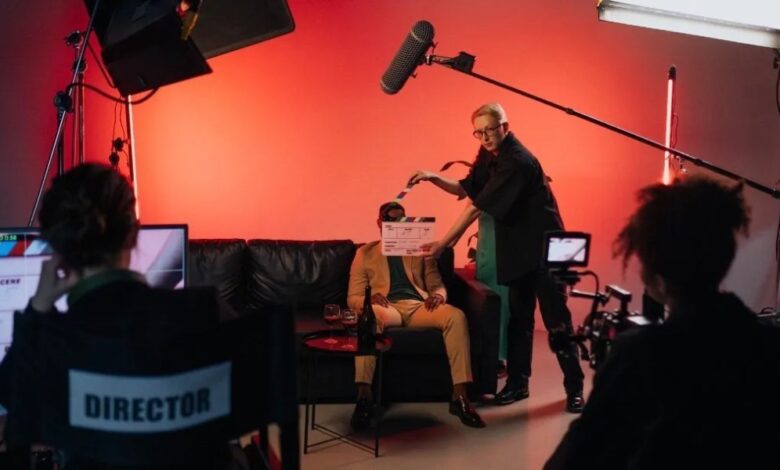ąĪommon Mistakes Indie Film Creators Make

Imagine youŌĆÖve just wrapped up your indie film project after months of hard work, sleepless nights, and limited resources. YouŌĆÖre excited, hopeful, and ready to share your creation with the world. But then, you realize that somethingŌĆÖs missing. The sound isnŌĆÖt right, the pacing is off, and thereŌĆÖs confusion around some scenes. You may be wondering where things went wrong.
As an indie filmmaker, itŌĆÖs easy to get caught up in the excitement of the project and film festival circuit┬Āand overlook some important details. Avoiding common pitfalls can be the difference between a project that feels rushed and one thatŌĆÖs well-polished and impactful. Here are some of the most frequent mistakes indie filmmakers makeŌĆöand how to dodge them.
1. Neglecting Pre-Production Planning
Skipping pre-production planning is a classic rookie mistake. Many filmmakers, especially in the indie space, are so eager to get started that they dive straight into filming without a clear plan. This often leads to confusion, scheduling issues, and wasted time. A good pre-production plan involves finalizing scripts, creating shot lists, storyboarding, scouting locations, and ironing out production schedules.
Think of a director who didnŌĆÖt fully prepare for location changes and ended up losing half a day to find new spots for essential scenes. The rush of figuring things out on the fly can result in subpar shots, a wasted budget, and delays.
Tip:┬ĀSpend adequate time planning. Use tools like StudioBinder or Celtx to organize your script, shot lists, and schedules. ItŌĆÖll save you a lot of headaches down the line.
2. Underestimating the Importance of Sound
ItŌĆÖs easy to get caught up in making sure the visuals are stunning, but sound plays a crucial role in how your film is perceived. Bad sound can distract the viewer, even if the film is visually captivating. Think about itŌĆöcan you focus on the dialogue if thereŌĆÖs constant background noise, or if the sound feels too harsh or muffled? Absolutely not.
Imagine watching a tense, dramatic scene where the dialogue is drowned out by background noise, ruining the emotional impact. ThatŌĆÖs exactly why investing in good microphones, sound mixers, and post-production audio work is so important.
Tip:┬ĀAllocate some of your budget for sound. Good microphones, sound design, and mixing are non-negotiables. ItŌĆÖs just as important as the visuals.
3. Overlooking Budget Realities
As an indie filmmaker, your budget is often tight. ItŌĆÖs easy to underestimate how quickly costs can add up, especially when you encounter unforeseen expenses. If youŌĆÖre not careful, you might find yourself cutting corners at the last minute, compromising the quality of your project.
Imagine youŌĆÖre nearing the end of your project, and youŌĆÖve spent most of your budget. Then you realize you donŌĆÖt have enough left for color correction or post-production editing, and now your film looks unfinished.
Tip:┬ĀPlan your budget carefully. Allocate money for contingencies and ensure you reserve funds for post-production. ItŌĆÖs tempting to overspend on actors or locations, but make sure you have enough left for the crucial parts of filmmaking.
4. Rushing Through Casting
The actors you cast can make or break your film. Rushed casting decisions, such as not holding auditions or choosing actors based on convenience rather than suitability, can hurt the overall performance of the film. This doesnŌĆÖt just mean choosing big names, but actors who genuinely fit the roles and can bring your characters to life.
A good example is when a filmmaker cast an actor with great potential, but the chemistry between them and the other lead was off, which disrupted the flow of the film. Their performances didnŌĆÖt quite align with the tone of the story, affecting the final cut.
Tip:┬ĀDonŌĆÖt rush casting. Give actors the time to audition, and choose performers who truly resonate with the role, not just those who are available.
5. Skipping Test Screenings
Test screenings are often overlooked by indie filmmakers, but they are an essential step in understanding how your audience will receive your film. Getting feedback from a small group of people allows you to spot pacing issues, unclear dialogue, or plot holes before your film goes public. Skipping this stage can result in critical mistakes that could have been avoided.
LetŌĆÖs say youŌĆÖve finished your indie film and decide to submit it straight to festivals. But when you get feedback, you realize that the ending was confusing for viewers, or that a crucial subplot wasnŌĆÖt clear. You could have solved these issues with a test screening.
Tip:┬ĀScreen your film for a small audience beforehand. Use their feedback to refine your film, making sure itŌĆÖs as polished and engaging as possible.
6. Neglecting Post-Production Needs
Many indie filmmakers are so focused on getting their film shot that they forget to give post-production the attention it deserves. Editing, sound mixing, color correction, and visual effects are just as important as filming itself. Cutting corners during post-production can lead to a disjointed final product.
A filmmaker who doesnŌĆÖt budget enough time for editing may rush through the process, leaving scenes that feel jarring or incoherent. The result? A film that doesnŌĆÖt flow well or engage the audience fully.
Tip:┬ĀGive post-production the time and resources it deserves. Edit the film carefully, and donŌĆÖt neglect sound or visual effects, as they can elevate your story.
7. Ignoring Marketing and Distribution
ItŌĆÖs a common misconception that finishing your film is the hardest part. In reality, distribution and marketing are equally important. Even the best indie films can go unnoticed without a solid strategy for getting them into the hands of viewers.
Consider a filmmaker who creates an amazing movie but never submits it to festivals or creates any online presence. Without a marketing strategy, the film stays hidden, missing out on valuable opportunities for recognition.
Tip:┬ĀStart marketing early. Build a social media presence, submit your film to festivals, and work on distribution channels. Without this, your film could remain unseen by the audience it deserves.
8. Failing to Build a Network
Networking is key to success in the indie film world. Many filmmakers focus solely on their craft but neglect the importance of building connections with other filmmakers, actors, and industry professionals. A strong network can open doors to funding, collaboration, and future opportunities.
A filmmaker who attends film festivals, participates in online filmmaking communities, and connects with other filmmakers will likely have more opportunities to collaborate, gain insights, and grow professionally.
Tip:┬ĀBuild relationships in the industry. Whether itŌĆÖs online or at events, networking can help you get your film noticed and open doors for future projects.
Remember, preparation, attention to detail, and continuous learning are key to creating successful independent films.



